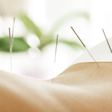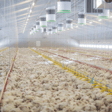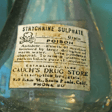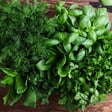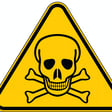Become a Creator today!Start creating today - Share your story with the world!
Start for free
00:00:00
00:00:01

Why Don't I Heal? How Can I Heal Faster/Better?
No matter who you are, eventually you get sick or injured. It may be just a cold, or something much more virulent. You may cut a finger, or break a leg. No matter whether large or small, it's important to heal, completely and quickly.
In this episode, I talk about some things that can have an impact on your healing--either positive or negative. If you'd like to know more about these factors and what you can do to help yourself to heal, take a listen. And as always, please feel free to leave a comment.
Transcript
Introduction to Holistic Health
00:00:00
Speaker
Hello and welcome to the full spectrum holistic health podcast. Now this podcast is all about holistic health, what it is, various holistic and alternative health therapies, and how those may help you to be a healthier person. Thanks for choosing to listen today, because I know that there are many podcasts out there for you to choose from, but I'm glad you're here.
00:00:24
Speaker
I'm the host for the podcast, Dr. Anthony Burton.
Background of Dr. Anthony Burton
00:00:28
Speaker
I'm a Reiki master, EFT therapist, meditation teacher and shamanic practitioner and sound therapist. My goal is to help people be healthier in mind, body and spirit. And that's why I'm here. A large part of what I do is really educational in nature because so many people are unaware of the power and efficacy of various holistic and alternative therapies.
00:00:54
Speaker
In these podcasts, you'll hear stuff that I hope will inform you and lighten you and energize and balance you. And of course, it's not only going to be my opinions and ideas, because occasionally I will be interviewing knowledgeable and interesting guests from a variety of areas of holistic, complimentary, and even allopathic medical practice.
About Spectrum Holistic
00:01:14
Speaker
So kick back and relax, open your mind and listen.
00:01:19
Speaker
Spectrum Holistic is a complimentary health and wellness business located in northwest Georgia, USA. Check out the website at www.spectrum-holistic.com. You know, no one in this world is ever perfectly healthy 100% of the time. It doesn't matter if they are, you know, just
00:01:47
Speaker
exercise, guru, or anything else. Everybody gets sick, they get injured once in a while. And when that happens, you want to heal as quickly as possible.
Mindset and Healing
00:01:59
Speaker
So what I want to talk about today in this episode is factors that can affect how you heal, how fast you heal, and how well you heal. First point is, this may sound silly, what is your mental attitude?
00:02:18
Speaker
Mental attitudes and emotions have an immense impact on how we heal. I've spoken about this before in my podcast, but I want to reiterate a couple of points here. Now more than one scientific study has shown that having a positive attitude can increase the body's ability to heal and make it heal faster. A large part of this is explained by what is called neuroplasticity.
00:02:47
Speaker
Neuroplasticity is the brain's ability to change over time with repetitive statements or thoughts. And that goes for positive statements and negative statements. For instance, constantly telling yourself or thinking, man, I am never going to recover from this broken leg. Or, I'm just stuck with being overweight forever. Will over time change how the brain deals with the healing process?
00:03:16
Speaker
And believe me, the brain controls a lot of what is happening with healing. A Benner idea, in keeping those negative thoughts in your head, making negative statements, is to put positive thoughts and affirmations into your psyche.
00:03:32
Speaker
Now, some people might say, Oh man, that is just wishful thinking. It's just giving yourself false hope. That is not how the brain works. If you keep your mental and emotional focus looking forward to a healthier future, your brain will respond in a way that encourages the body to heal faster and more completely. But as I said, putting those negative defeatist thoughts into your brain will push you in the opposite direction.
00:04:02
Speaker
My wife, career RN, as well as a Reiki healer, has seen many cases where two patients can have similar health issues. One patient fought and pushed forward toward healing, while the other one gave up. And this slowed their healing, and sometimes they just passed away. Losing the will to live can literally be fatal.
The Role of Sleep in Healing
00:04:31
Speaker
Another thing to think about is how is your sleep? And when I ask this, I mean really good, healthy sleep. All living beings need times of risk, whether they're human beings, or dogs, or cats, or snakes, or fish, or even plants. But what is good sleep? And why does it affect how your body heals? Well, good sleep is not simply what happens when you close your eyes and become unconscious for a few hours.
00:05:00
Speaker
Good, healthy sleep is complex and actually occurs in stages. Essentially, there are three types of sleep. Light, deep, and REM sleep. REM stands for REM. That's rapid eye movements. Now, not one of these is better than the other because you need all three kinds of sleep to be your very best.
00:05:27
Speaker
Now, on the average, this means about 50% light sleep, 25% deep sleep, and 25% REM sleep. Point of interest, REM sleep is where your dreams occur. Okay? Some people say, oh, I never dream. Well, you are dreaming.
00:05:45
Speaker
But the only time you really recall a dream is when you wake up either in the middle of it or very close to the end of it. But you might have noticed if you do dream and you wake up in the morning, most of the time those dreams, they fade like nobody's business. They fade out within a few minutes and someone asks you to tell them details about the dream. They in an hour. Oh, it's really different. So anyway,
00:06:11
Speaker
This series of light sleep and deep sleep and REM sleep, all in one, are considered to be one stage. Now typically, human cycle between these stages of sleep, in other words, a light sleep, a deep sleep, and a REM sleep, about every 80 to 100 minutes. And a good healthy sleep session means you get about four to six of those 80 to 100 minute sleep cycles.
00:06:41
Speaker
But why is that important for healing? Well, the sleep time is when our bodies not only rest, but they also recuperate from the day. This is when your body can focus on replacing dead or damaged cells, skin cells, bone cells, muscle cells, mucous membranes. I said all that stuff is rebuilt at night while you're sleeping or in the daytime while you're sleeping, whatever.
00:07:08
Speaker
In addition to the body cell maintenance, this is also when your subconscious mind will deal with issues that have occurred during the day or recent past. Maybe you had a problem at work that really you just can't figure it out. Maybe there was a disagreement of some sort with a friend or family member. Maybe you're working on that next chapter in the great American novel and you can't figure out how to make that plot twist get in there.
00:07:37
Speaker
Many times, your subconscious, while you're asleep, will take charge and sift out the various options and possibilities for solutions. Now, why is it easier? Well, it's easier when you're asleep because your mind isn't distracted by the things around you. Sounds, sights, lights, conversations, etc. So the focus that your subconscious mind puts on it is more on the problem
00:08:03
Speaker
and the possible solutions than on all the normal distractions of waking life.
Environmental Factors in Healing
00:08:10
Speaker
How is your breathing? Now, there are a lot of things that can have an impact on how we breathe. Maybe you are in an environment where the air is not clean. Maybe you work in an industrial environment.
00:08:25
Speaker
a place where people smoke around you, or a dusty environment, or just plowing a field, or performing other tasks that produce a lot of particulate matter, like working in a sawmill, or working in a wood shop. Our bodies need fresh, clean air with all of its usual components, oxygen and nitrogen and argon, etc., in order to properly burn calories, to heal damaged cells, and to create new cells.
00:08:55
Speaker
If we deprive our bodies of that fresh, clean air, we reduce the body's ability to do all those things and thus to heal. Like I say, if you ingest that dirty or tainted air, you're just not gonna heal as quickly. Now, what about, I know I'm gonna step on someone's toes, smoking. Smoking, whether it's a cigar, a cigarette, pipe, vape, and not just smoking, but also,
00:09:22
Speaker
chewing tobacco, dipping, snuff, whatever. All of those contain nicotine. And even though you're not smoking the snuff or the chewing tobacco, still the nicotine gets in your system. The nicotine will close constricted blood vessels and it'll keep that good oxygenated blood that your lungs are producing from getting to the sick or damaged areas.
00:09:44
Speaker
Air that contains dust or other particles will irritate the body's respiratory system. And of course this causes inflammation and this also restricts blood flow to the areas that need to be healed. I know a lot of people enjoy a few drinks and alcohol is often thought of as a stimulant to thought processes.
00:10:10
Speaker
But the truth is alcohol is a central nervous system depressant. Alcohol can inhibit the body's immune systems too. And this reduces the body's ability to fight infection. And of course, if you can't fight infection, but you should, then that slows the healing process and makes it more dangerous because extra infection may occur. You know, you may have just cut your toe.
00:10:37
Speaker
and find the alcohol might keep it peeling as quickly as it should, but also it could cut down on your ability to find affection so the toe may become infected and make it even worse. If you have a broken bone,
00:10:53
Speaker
Alcohol is a contributor to the poor healing of fractures, and this is because alcohol reduces production of the specific cells required for the formation of bone callus and new bone tissue. Alcohol even slows the healing of nerve cells, and when I'm talking about healing of bone tissue,
00:11:13
Speaker
and other cells. That smoking thing, that's bad too. Just like I mentioned before, the smoking and the alcohol. If you smoke and drink alcohol, it's a double whammy on how your body tries to heal and you're just hurting yourself.
The Impact of Lifestyle Choices on Healing
00:11:32
Speaker
How's your mental state? How relaxed are you? Now there have been a lot of scientific and medical studies that have shown that patients who are relaxed heal more quickly.
00:11:45
Speaker
It's really reasonable, you know, because tension in the body causes your muscles to tighten up. You know, you've gotten those tension headaches before where your neck is stiff and your face feels all tight, you know, on your shoulders. When those muscles tighten up, this restricts a proper flow of blood to those tissues that need to heal. And this in turn diminishes their ability to heal. That's a big reason why doctors often say when you're ill, hey, you need your home.
00:12:14
Speaker
relax, get some rest, because otherwise you're not going to heal. And people say, oh, I don't have time to rest. Well, do you have time to be sick? Because if you don't rest and relax your body, it's going to heal more slowly and you're going to be sick longer. So it is. Now, I do understand that many people relaxing means a couple of cold ones or maybe a mixed drink or three, but this is actually self-defeating.
00:12:45
Speaker
Remember what I just said about alcohol consumption and how it affects the healing process. Now there are better ways to relax. Listening to some soothing music or maybe nature recordings. Take a hot soak in a bathtub or even a hot shower. And if you're into it, meditating. And while you're at it, be sure to get enough sleep.
00:13:11
Speaker
Of course, this might mean that you reduce your intake of caffeine for a while because a lot of people when they drink those seven or eight cups of coffee during a day, it makes it hard for them to sleep at night. They want to cut back on that because if you're not sleeping well and not relaxing and you're all tense, you're not going to heal. How's your circulation? Unless you are in a situation where you simply cannot do so. Light exercise.
00:13:39
Speaker
I mean light exercise. We get the blood flowing through your veins and thus stimulate healing. Now I will say this, you should always, always, always check with your physician before embarking on any sort of exercise program. Especially if you have some health condition, you're sick or you're injured and follow your physician's advice. Don't just jump into it. I can tell you a story. When I was a kid, I was really chubby.
00:14:08
Speaker
I got sick of it, so one night I decided, I'm going to lose this belly. And I, after everybody went to sleep, I stuck my feet under the edge of the bed and I forced myself to do 55 sit-ups. Doesn't sound like a lot, right? But I had never done sit-ups maybe three or four at a time before that. I was 12 years old. Next day,
00:14:34
Speaker
I had to come home from school. My stomach muscles were so sore. I felt like somebody had repeatedly punched me. It was dumb for me to just jump right into that. I should have worked my way up to that.
Nutrition and Healing
00:14:51
Speaker
How's your diet? I don't mean if you're following a keto plan or Atkins diet or Weight Watchers or whatever. I mean
00:14:59
Speaker
What do you eat or drink on a regular basis, regardless of whether you may be trying to gain weight or lose weight? Some people do try to gain weight, you know, muscle builders and stuff. Modern Western diets are typically full of things that our ancestors would not have even recognized as food. They certainly do not have the same nutritional content as what our ancestors ate. Vegetables and fruit are great for you.
00:15:28
Speaker
But I'll tell you, if they're grown on farms where chemical fertilizers and pesticides are used, you're eating stuff that you may not even know you are eating. Petrochemicals, you know, like the standard bag of, you know, 10-10-10 or 6-12-12 fertilizer that you pick up at the feed store or the hardware store, are used to quote-unquote enrich the soil in most factory farms.
00:15:55
Speaker
Weed killers and pesticides are used to make it easier to harvest the crops and to make the fruits and veggies look nicer but not having insect damage. Now the thing about it is all this stuff is done not for your sake but for the sake of the farmer because they want to be able to sell as many veggies as possible.
00:16:17
Speaker
So they want major, major production, and they want harvesting to be easy, so they don't want the weeds to be in the way. They want the fruit and veggies to look pretty, so they want to kill the bugs. But in the so doing, they put those chemicals on there, and those same chemicals are harmful to us, the humans who eat the food, and also to the environment where the food is grown. Also factory farms.
00:16:45
Speaker
Usually monoculture farms, monoculture means that they devote, you know, hundreds or thousands of acres to growing only one crop like corn or wheat or whatever. They deplete their soil of naturally occurring nutrients. So they try to replace it with chemical fertilizer.
00:17:06
Speaker
Scientific studies, serious scientific studies have shown that crops grown on these unnaturally fertilized fields, the ones that use chemical fertilizers instead of normal, you know, stuff like manure and leaf mold and all that kind of thing, they actually have less nutritional value per ounce than crops that are grown in that natural stuff. So that tomato,
00:17:34
Speaker
It's at the grocery store and it looks so beautiful sitting there, you know, on the shelf in the cooler. Maybe huge, like, oh gosh, I can make four or five sandwiches out of that tomato. So beautifully bright red, it has no bug marks on it. And maybe all those things and bigger and prettier than the one that's grown in the garden with natural humus and natural fertilizer.
00:18:00
Speaker
But the smaller tomato that might not be as pretty will literally be healthier for you because it will be more nutritious and probably it'll taste better in the bargain. OK, so I'm talking about vegetables and fruits here. Maybe you are one of those people who's more of a carnivore. I won't debate the ethics of that with you, because honestly, once in a while I crave a steak or pork chop.
00:18:27
Speaker
But I do want to talk about the meats you usually buy in your grocery store or get in a sandwich at your local fast food joint. Whether it's chicken or beef or pork or lamb, if it is grown on a factory farm, you are getting more than you bargained for. And I don't mean that in a good way. Factory farm animals are loaded with antibiotics, not because they are sick,
00:18:54
Speaker
but because the people who raise them give them what are called preventive antibiotics. Not long ago, I published an episode about CAFOs, or concentrated animal feeding operations, where I give a lot more information about that, so I'm not gonna repeat it all here, but I do recommend that you go back and listen to that episode. The other thing that these concentrated animal feeding operations have in common is hormones. First of all, stress hormones.
00:19:24
Speaker
Every living thing, even plants, develop stress hormones when they are forced to grow in an unnatural environment. And growth hormones, because many times in those concentrated animal feeding operations, they put growth hormones in the feed for the animals. That means that they can make those chickens or pigs or whatever plump up faster, develop more meat on their bones, and that means that they can
00:19:53
Speaker
sell them for a higher price, and if they pump up faster, they can pump the system quicker and put more chickens through, say, a chicken house in one year. The problem is those hormones, whether they are stress hormones or whether they are growth hormones, usually both. They don't just evaporate when the animal is slaughtered. They don't run out with the blood and leave the meat all clean and untainted. They stay in the meat.
00:20:22
Speaker
And when you eat that meat, you also consume the hormones, whether they're stress hormones or growth hormones. So I've been talking about the food we eat and you might be wondering what it has to do with how we heal. Well,
00:20:41
Speaker
A few points here. If you want to heal, you need good nutrient-rich food to enable your body to heal properly. It's just, you know, if you don't put good materials into it, if you're building a house and you use crappy 2x4s and weak concrete and nails that are too weak to hold the boards together, your house is going to be in bad shape. It's going to start to fall apart and crack at the seams.
00:21:07
Speaker
Same thing goes for how you build your body. Vegetables and fruits grown in factory farms have less of the nutrients that your body needs than those organically grown veggies and fruits. Now, people say, oh, but it costs so much money to buy organic fruits and veggies. It does cost a little more sometimes. Here's the thing. It's economy of scale. First of all, how much do you value your health?
00:21:37
Speaker
Do you want to pay the doctor later or do you want to pay for the organic veggies now? Pretty simple. The economy is a scale. That means, you know, if more people are buying organic fruits and veggies, then more places will carry them and the price will go down. Remember when cell phones first came out? They were ungodly expensive. But the more people who bought cell phones, they came down in price. I can go down to
00:22:05
Speaker
local discount store and buy a simple phone for $49 that in the first year the cell phones came out when it cost me about a thousand because of the economies of scale. Another point, you do not want to consume food that is contaminated with chemicals like pesticides and herbicides because those chemicals do stay in the food even after it's cooked.
00:22:32
Speaker
and they will harm the body in addition to slowing the healing process, just the way it works or doesn't work in this case. Last point, eating animals that have been raised in a feedlot or a factory farm such as a CAFO is unhealthy because you yourself end up consuming the preventive antibiotics and the hormones, whether it's stress hormones or whatever, and all these things contribute to slow healing of the body.
00:23:04
Speaker
There's so many different things that can contribute to a slow healing process. And honestly, I've only dipped my toe in the water here. When your body is injured, when you contract an illness, if you develop something like cancer or leukemia, you don't want to do things that will keep you from healing. It doesn't do you any good at all.
00:23:28
Speaker
So keep what I've said here in mind. Be smart. None of us like to anticipate or expect to get sick or hurt, but you know what? It happens. Take care of yourself.
Conclusion and Call to Action
00:23:41
Speaker
Avoid the things that may keep you from healing. You'll be healthier in the long run. And if you do happen to get injured or ill, you'll heal more quickly. Take time to think about it.
00:23:58
Speaker
I want to thank you for being here and listening to the podcast today. I hope it's been interesting and informative and thought provoking. If you did find it interesting, please be sure to return for another episode and tell your friends about it too. I appreciate if you do that because it really helps me out. You can share directly from most podcast platforms and subscribing to the podcast would be great. If you want to tell me you liked the show,
00:24:27
Speaker
or that you hated it, that you agree or disagree with me or anything else, really, go for it. Just leave a message for me on your podcast platform. Until next time, stay safe, stay healthy, keep an open mind. Namaste.

